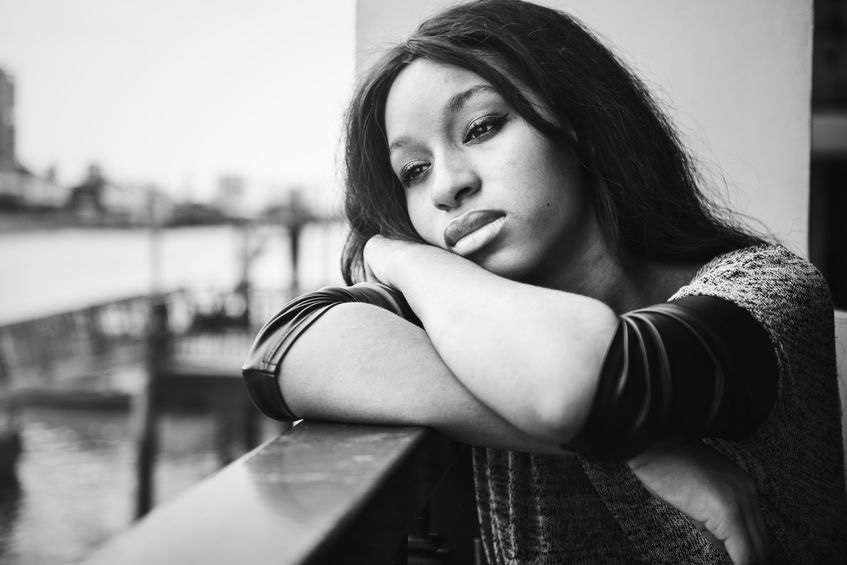With the news that Taraji P Henson has launched a free virtual therapy service for the Black American community to help combat mental health issues around COVID-19, we highlight just some of the excellent resources available to us in the UK.
Actress, mother, activist and a Queen who uses her influence to uplift others, we knew it would only be a matter of time before we heard that Taraji P Henson would be rolling her sleeves up to assist during the global pandemic. Through her charity, the Boris Lawrence Henson Foundation, Taraji has launched a free virtual therapy service for Black Americans.
Announcing through Instagram details about her COVID 19 Virtual Therapy Campaign, Taraji explained that it was to help under-served communities experiencing life-changing events related to or triggered by the COVID-19 pandemic. Taraji has previously spoken about the difficulties of many Black Americans accessing mental health support, and this is the basis of the charity, which was created to break the cycle and to overcome the stigma surrounding mental health issues in the Black community.
View this post on Instagram
Mental health support is vital all the time, but especially right now, given how COVID-19 disproportionately affects Black Americans, as reported in Essence. This situation mirrors what’s happening in the UK where an inquiry is now looking into why, despite the fact that only 14% of the UK’s population are BAME (Black and Minority Ethnic), they account for 35% of all coronavirus patients in intensive care, according to The Guardian.
View this post on Instagram
While the inquiry deals with the very important questions around why BAME people are disproportionately affected by the virus, what are the barriers to Black people getting the right mental health support and where can they go?
Dr Tosin Sotubo is a GP who has recognised the lack of understanding and inequality when it comes to treating Black patients. She told Metro News “Health to me is inclusivity and treating the patient as an individual. We live in such a culturally diverse population, but we often have one treatment, or one advice fits all approach.”
Many Black-centred initiatives are taking matters into their own hands by providing much-need support for the Black community. One such organisation is The Ubele Initiative, an African diaspora social enterprise. They have set up targeted support under the theme: COVID-19, Supporting BAME Communities, which offers webinars, research and advocacy for BAME communities in the UK.
“Coronavirus is not the great leveller. What it’s showing clearly is long-standing systemic entrenched institutional inequality. The system is designed, stacked, run, its roots are based, on inequality.”
Founder and CEO of The Ubele Initiative, Yvonne Field, recently told Gal-Dem: “Coronavirus is not the great leveller. What it’s showing clearly is long-standing systemic entrenched institutional inequality. The system is designed, stacked, run, its roots are based, on inequality. We’re not even considered, let alone centred. It’s like we’re a whole big blind spot. And if we’re not a blind spot we’re an inconvenience.”
It’s no wonder that we have to create spaces that cater specifically to the Black experience, but they must be accessible too. In the UK, Frontline Therapist is a service that connects Black and Asian ethnic minorities with Black and Asian therapists at an affordable cost. Frontline Therapist founder, Esther Sherato told Jamii: “Frontline Therapist exists because it is a solution to a not-often-spoken-about problem in our society, especially in the Black and Asian community.”

Another service that puts Black mental health at the forefront is Black Thrive, a mental health partnership that focuses on residents within the borough of Lambeth. Black Thrive is currently offering weekly drop-ins on Fridays via zoom to allow the community to connect and to talk about how they’re feeling. You can find out more about this service and other Black Thrive campaigns here on their website.
The coronavirus is just the latest way through which we see the inequalities for Black people within Society. Now that we have acknowledged this disparity, we need to follow in the lead of these organisations and put the work in to support ourselves.
“We’ve been taught to tough it out, hide our suffering. But this is something that none of us has ever experienced, and no one should suffer in silence.”
Vanessa Boachie, founder of Inside Out UK a mental health charity that provides preventative strategies to reduce the risk of Black people developing severe mental health issues, told iNews: “The research tells us that Black British people are most affected by mental health issues in the UK and when you look at the people who are in charge of these charities and designing the programmes and campaigns, most of the time they are not Black British.”
It’s clear that everybody responds differently to stressful situations, but this disproportionate marker on Black people by COVID-19 must be addressed.
In the words of Taraji: “We’ve been taught to tough it out, hide our suffering. But this is something that none of us has ever experienced, and no one should suffer in silence.”
If you need support during these trying times. Don’t suffer in silence, seek help.












